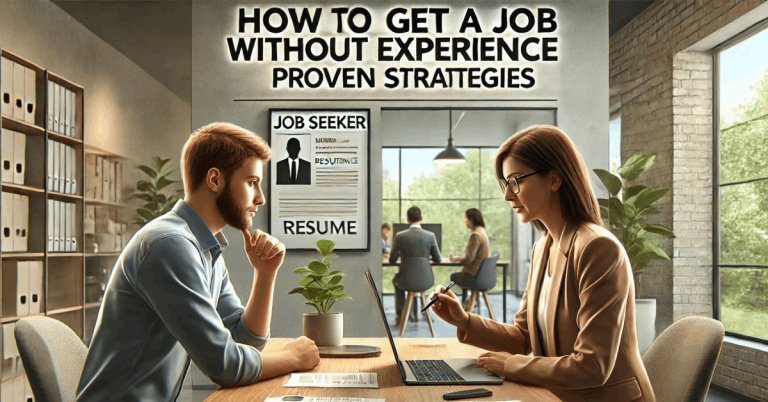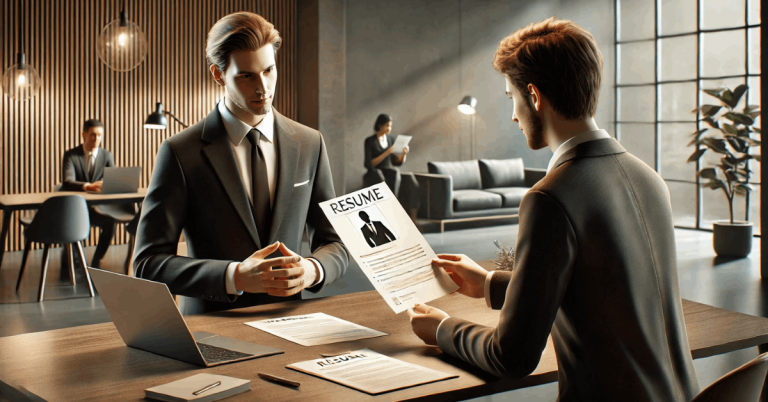Standing out in a job interview takes preparation and strategy. This article covers essential job interview tips to help you impress any employer.
Each section offers clear, practical steps to boost confidence and leave a strong impression. Follow these tips to improve your chances of landing the job.
Why Preparation Matters?
Getting ready ahead of time makes a big difference in how you perform. It helps you stay confident and respond well under pressure.
Employers notice when someone is well-prepared and engaged. Good preparation reduces stress and improves communication skills.
It also helps you stand out from other candidates. A strong first impression often leads to better job opportunities.
Learn About the Company
Understanding the company helps you connect with its goals. It also shows that you are serious about the role.
Why Company Research Matters?
Knowing a company’s culture, mission, and industry position gives you an advantage. It helps you speak about how you fit into the company’s vision.
Employers appreciate candidates who show knowledge of their business. Understanding their industry can help you predict the challenges they face.
This makes your answers stronger and more relevant. Well-researched candidates leave a lasting impression.
How to Find the Right Information?
A few simple steps can help you gather useful details:
- Check the company’s website – Read the “About Us” page, values, and recent announcements.
- Look at their social media – See how they present themselves and engage with customers.
- Read recent news articles – Learn about industry changes and company updates.
- Review employee feedback – Websites like Glassdoor provide insights into company culture.
- Understand their competitors – Knowing the market can help you discuss the company’s position.
Know the Job Role
Understanding the job description helps you match your strengths to the role. It also makes explaining why you are the best choice for the position easier.
Why Matching Skills to the Role Matters?
Aligning your skills with the job’s requirements makes your application stronger. It helps you highlight the right experiences instead of general achievements.
Employers want to see that you understand what the role needs. This also helps you answer questions with clear examples.
If you know what they want, you can prepare better responses. A focused approach increases your chances of success.
Key Skills to Highlight
Look for specific skills in the job description. If they mention teamwork, leadership, or problem-solving, make sure you provide examples of those.
Use past experiences to prove your ability in those areas. Keep your examples relevant and tailored to the role.
Practice Common Questions
Knowing common questions helps you prepare better answers. It also builds confidence and reduces stress.
Common Questions You Should Expect
Most employers ask similar questions to assess your skills and experience. Preparing for these in advance helps you give clear and structured answers.
- Tell me about yourself.
- Why do you want this job?
- What are your strengths and weaknesses?
- Can you describe a time you solved a problem at work?
- How do you handle pressure or tight deadlines?
- Where do you see yourself in five years?
- Why should we hire you?
- Do you have any questions for us?
How to Structure Your Answers – STAR Method
The STAR method helps you answer with clarity and structure. It keeps your response focused and easy to understand.
- Situation: Briefly describe the situation you faced.
- Task: Explain the specific task or challenge involved.
- Action: Outline the steps you took to handle the situation.
- Result: Highlight the outcome and what you achieved.
Make a Strong First Impression
First impressions matter in every professional setting. Arriving prepared helps you show confidence and professionalism.
Why Appearance and Timing Matter?
Being on time shows respect and reliability. Rushing in at the last minute creates stress and makes you look unorganized.
Your appearance also affects how others see you. Neat and professional clothing makes a strong impact.
Small details, like clean shoes and good posture, can make a difference. Employers notice those who present themselves well.
Dressing Well and Using Good Body Language
Clothing should match the company’s culture while staying professional. A well-fitted outfit makes you feel more confident.
Avoid flashy colors or distracting accessories. Your posture should be open and engaged—sit up straight and maintain eye contact.
A firm handshake and a genuine smile create a positive connection. Small adjustments in body language can improve your presence.
Develop a Connection with the Interviewer
A good connection makes the conversation smoother and more comfortable. It also helps you leave a positive impression.
How to Build Rapport?
Engaging with the interviewer can make you stand out. Using simple techniques helps create a natural and friendly exchange.
- Start with a warm greeting – A firm handshake and a smile set the right tone.
- Use their name – People respond better when addressed personally.
- Find common ground – Mention shared interests or experiences if appropriate.
- Show enthusiasm – A positive attitude makes the conversation more engaging.
- Mirror their tone – Adjust your energy level to match theirs while staying professional.
Why Active Listening Matters?
Good listening skills show respect and genuine interest. Avoid interrupting and give the interviewer time to speak.
Nodding and maintaining eye contact show that you are engaged. Responding with relevant points proves that you understand the discussion.
Prepare Thoughtful Questions
Asking the right questions shows curiosity and preparation. It also helps you learn more about the role.
Why Do Your Questions Matter?
Employers notice candidates who show interest in the company. Asking thoughtful questions proves you are serious about the opportunity.
It also helps you understand what to expect in the workplace. A well-prepared question makes a strong final impression.
Smart Questions to Ask
Choosing the right questions can reveal important details about the job. It also helps show your engagement in the conversation.
- What qualities make someone successful in this role?
- How does this position contribute to the company’s goals?
- What are the biggest challenges in this role?
- How do teams collaborate within the company?
- What are the next steps in the hiring process?
Follow-Up
Following up after a meeting keeps you memorable and professional. A simple message can strengthen your chances.
Why a Thank-You Email Matters?
A thank-you email shows appreciation for the opportunity. It reinforces your interest in the role without being pushy.
Sending it within 24 hours keeps your name fresh in their minds. A well-written message can separate you from other candidates.
t also allows you to mention something discussed in the meeting briefly. Small efforts like this leave a lasting impression.
What to Include in Your Follow-Up?
A strong follow-up email should be polite and direct. Keep it short while covering key points.
- Express gratitude – Thank them for their time and consideration.
- Mention something specific – Refer to a topic discussed during the meeting.
- Reaffirm your interest – State why you are excited about the role.
- Keep it brief – Avoid repeating your resume or adding unnecessary details.
- End on a positive note – Say you look forward to their response.
Key Takeaway Tips for Success
Good preparation helps you stand out in any hiring process. Research, clear answers, and thoughtful questions make a strong impact.
Small details like body language and follow-ups show professionalism. Use these strategies to impress any employer and increase your chances.












